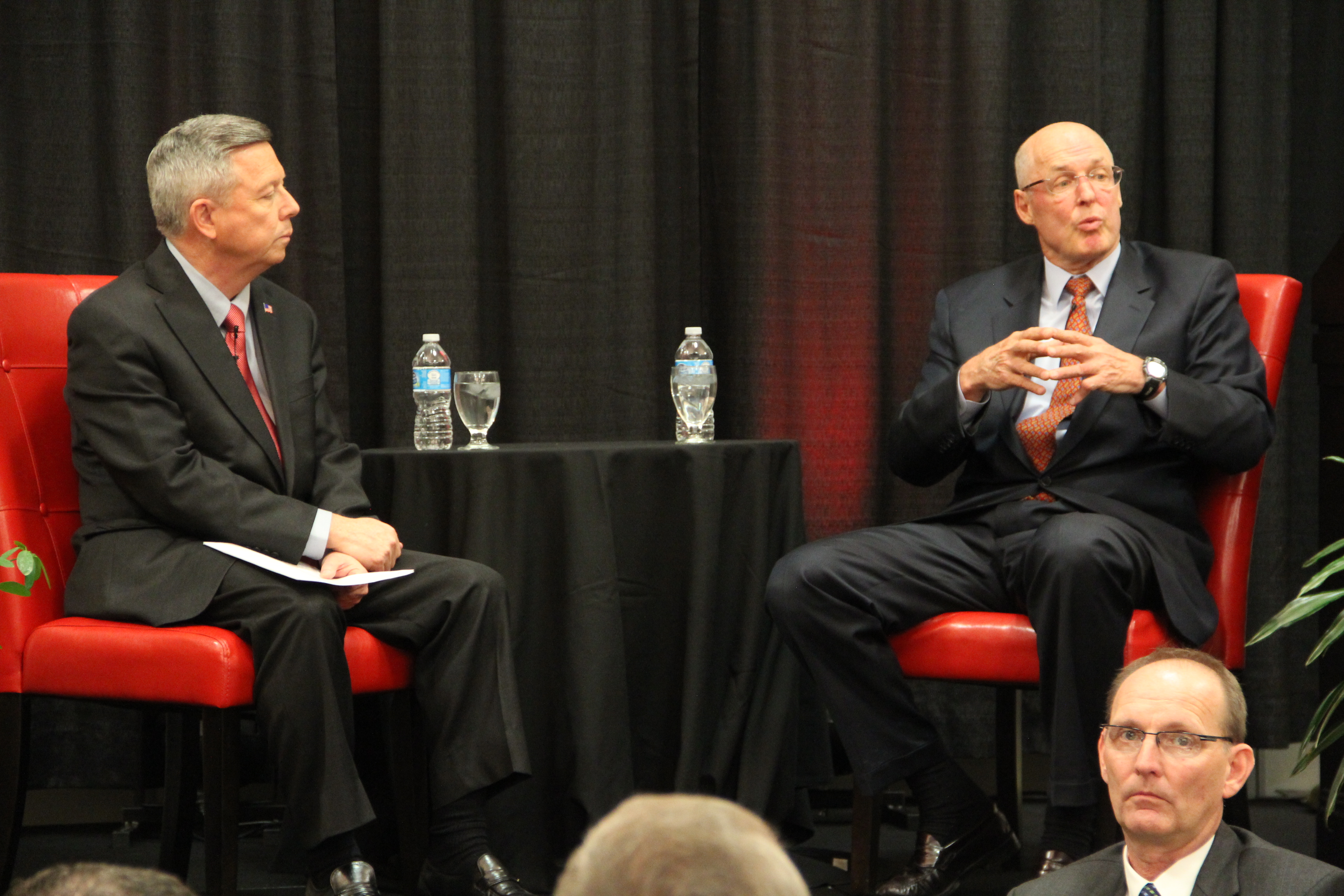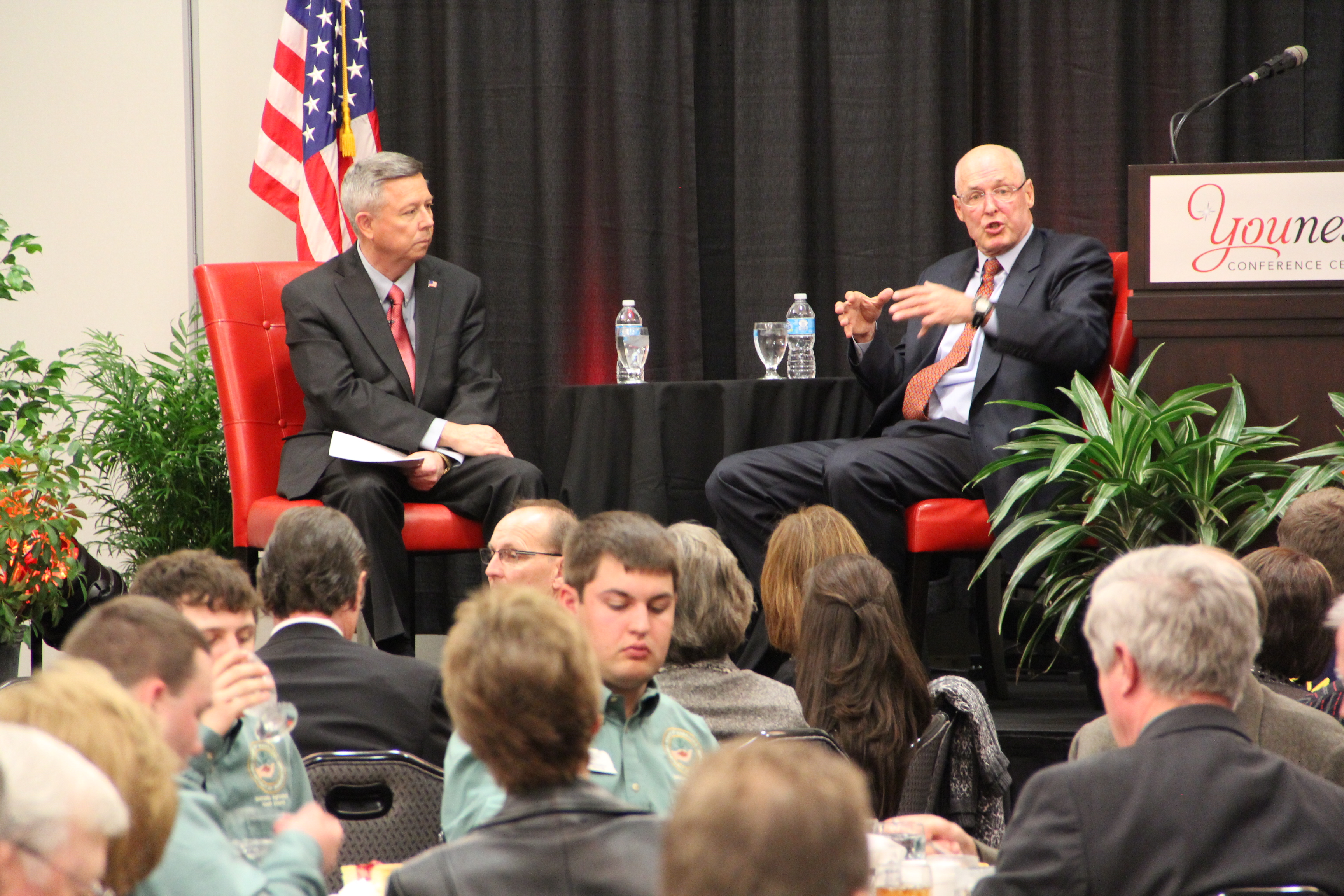
The Paulson Institute’s Program on Cross-Border Investment aims to bolster U.S. competitiveness and harness new opportunities in a rapidly changing world economy. On February 13, 2013, The Paulson Institute held its first “American Competitiveness Dialogue,” in Kearney, Nebraska. Governor Dave Heineman hosted Institute chairman Hank Paulson at the state’s 25th annual Governor’s Agriculture Conference. They discussed the future of U.S. economic competitiveness, the role of foreign investment in generating opportunities for states like Nebraska, and the prospects for enhanced trade and investment with China, particularly in agribusiness.

During the Dialogue, Heineman and Paulson discussed four questions with Nebraska processors, farmers, ranchers, and businesspeople: (1) How is the world economy changing, and what does that mean for the United States? (2) What does the United States need to do—at the federal, state, and local level—to compete? Specifically, what kinds of choices do Americans need to make to ensure that their businesses are strong and competitive? (3) What is the “right” role for foreign investment, and how can American business take advantage of the fact that foreign countries and firms want to invest in the United States but make sure that they create jobs for American workers, farmers, and ranchers while protecting U.S. national security? (4) How does China fit into the global foreign trade and investment picture? Put differently, what does the rise of 1.4 billion people as consumers, including as consumers of Nebraska farm products, mean for the state? What are some specific trade and investment opportunities with China?
The Governor’s Agriculture Conference is a marquee event in Nebraska, offering an annual opportunity to talk about the state’s number one industry. The theme for the 2013 event was “A Platform for Nebraska Agriculture’s Future,” with discussion of subjects such as agricultural research, livestock development, federal policy, weather, and, in the Governor’s dialogue with Paulson, American competitiveness, foreign investment, and economic interchange with China.



